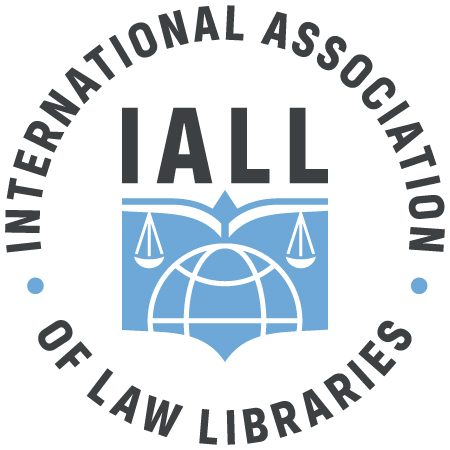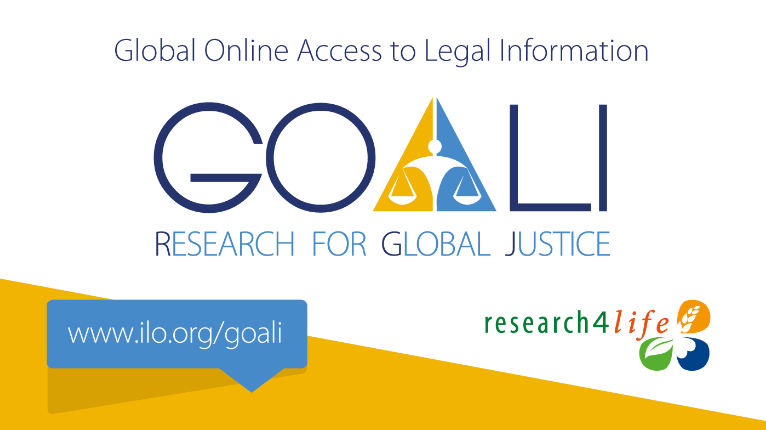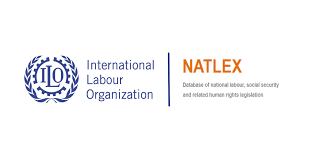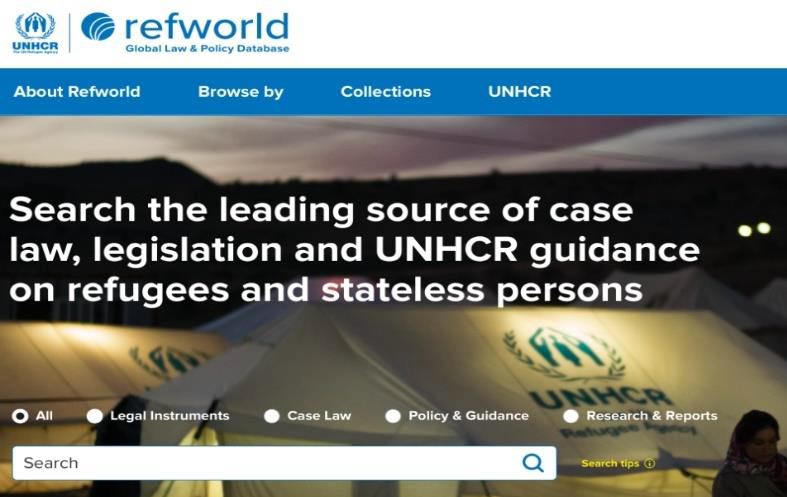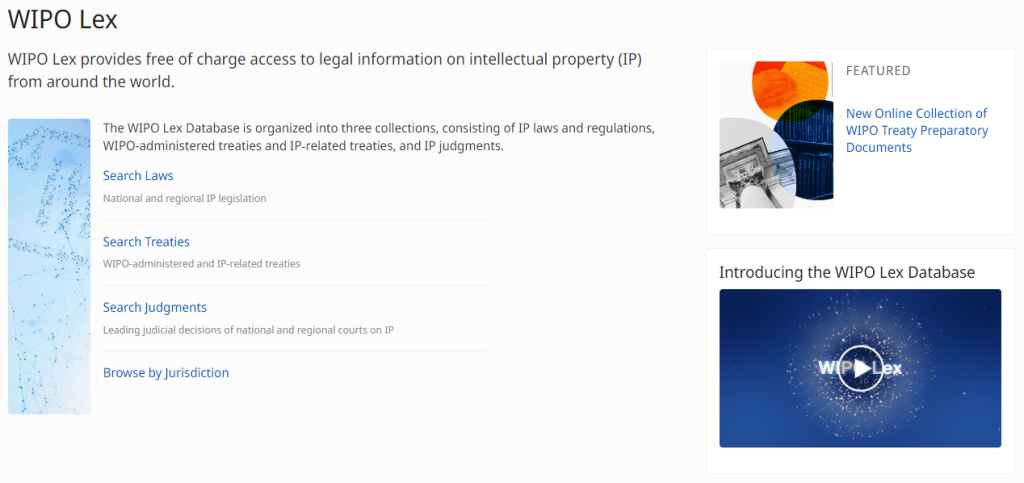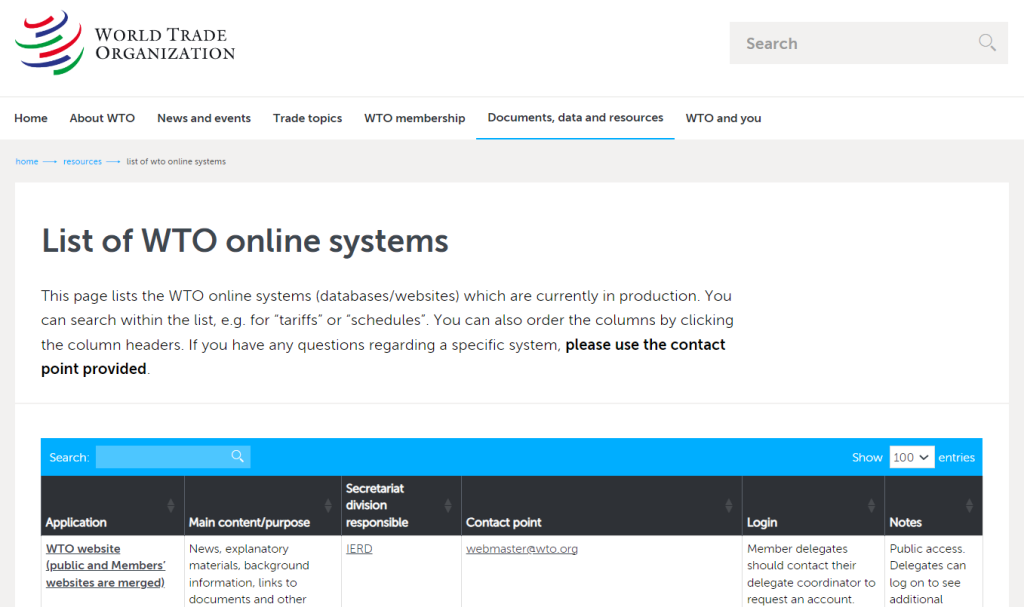By: Librarians and information specialists of ICRC, ILO, ITU, UNHCR, WIPO, and WTO
From the late 19th century to today, Geneva has developed into a major hub of agencies and organizations with global reach. The city is home to the largest UN Office after New York, UN specialized agencies such as the World Health Organization (WHO), the International Labour Organization (ILO) and the International Telecommunication Union (ITU), and international organizations such as the World Trade Organization (WTO) and the International Committee of the Red Cross (ICRC).
In the course of preparing the 41st annual course of IALL that will take place in Geneva next month, it occurred to us that it could be helpful to provide an overview of all the law-related resources built and managed by librarians and information specialists working for these organizations. Some of these are focused on treaties and other types of official documents, while others are great entry-points to search for case law and legislation from around the world.
Global Online Access to Legal Information – GOALI
GOALI – Global Online Access to Legal Information is a programme to provide free or low-cost online access and training to academic content on law and social sciences to research, public and not-for-profit institutions in over 125 lower income countries. Incorporating disciplines such as law, politics, economics, philosophy, history and many more from the most prestigious academic publishers, GOALI offers access to up to 20,000 resources, including books and peer-reviewed journals from 130 publishers, and the offering keeps growing.
The aim of GOALI is to improve the quality of legal research, education and training in low- and middle-income countries, and in turn strengthen legal frameworks and institutions and further the rule of law.
GOALI contributes to further the UN’s Sustainable Development Goals (SDGs), particularly Goal 16 relating to Access to Information and Access to Justice.
GOALI is part of the Research4Life partnership offering its partners, users and supporters the opportunity to contribute to the creation of a diverse, inclusive and equitable research ecosystem for all. Since 2002, Research4Life has provided researchers at more than 11,000 institutions in over 125 lower- and middle-income countries with free or low-cost online access to up 205,000 leading journals and books from more than 200 academic and scientific publishers.
History of ITU portal
The History of ITU Portal is a knowledge-base of International Telecommunication Union (ITU) activities, decisions, and member input. Through its digital collections it provides full-text access to key ITU publications and documents.
- The ITU Conferences collection includes the final acts and documents of over 200 ITU conferences – including all ITU treaty-making conferences – from 1865 to present.
- The Constitution and Convention collection includes all editions of the Constitution and Convention of the International Telecommunication Union (ITU), which is the basic treaty that establishes the legal basis for the Union and defines its purpose and structure.
- The Administrative Regulations collection includes all editions of ITU Administrative Regulations – including the Radio Regulations and the International Telecommunication Regulations – which complement the Constitution and Convention, regulate the use of telecommunications/ICTs and are binding on all Member States.
ICRC’s International Humanitarian Law Databases
The ICRC’s International Humanitarian Law Databases are a searchable set of three databases containing IHL-related resources. Users can search the three databases collectively or individually to find and access documents related to IHL, as well as its application, implementation, and interpretation.
The Treaties, States Parties and Commentaries database includes the text of IHL treaties and related documents and lists the States that have signed and/or ratified or acceded to the treaties, with any reservations or declarations. It also contains the ICRC Commentaries to the four 1949 Geneva Conventions and their Additional Protocols, including the updated Commentaries as they become available.
The Customary IHL database is an online version of the 2005 ICRC’s study on customary IHL. The database makes the rules and the practice underlying them accessible online. Its practice part is regularly updated. The rules remain the same as in 2005.
The National Practice database includes the manuals, legislation, case law and other national practice implementing IHL treaties and/or appearing in the Customary IHL database. These documents are collected by ICRC delegations, National Red Cross and Red Crescent Societies and other partners around the world.

NATLEX
NATLEX, the ILO’s database of national labour laws, is a valuable resource for researchers, policymakers, and anyone interested in labour legislation. A user-friendly interface and vast collection of up-to-date information in the three ILO Official languages provide access to labour laws from over 190 countries and territories, promoting decent work and social justice. The database is regularly updated, reflecting legislative changes and amendments, ensuring the accuracy of its information. NATLEX received the 2022 Jus Gentium Research Award for enhancing international law information resources.
REFWORLD
A revamped Refworld, UNHCR’s global law and policy database containing information relating to forcibly displaced and stateless persons, will be launched later this year.
The revamped Refworld provides its audience (policy and law-makers, judiciary, legal practitioners, civil soviety, academics and researchers as well as UNHCR staff) with a new user-friendly design, intuitive navigation and enhanced search functionalities, to assist them in the implementation and application of the international legal framework relating to refugees, stateless persons and internally displaced persons. Its scope and content are restructured, focusing on the presentation of UNHCR’s policy and guidance; legislation, case law and national and international policy documents; and additional reports and research on international protection from external sources.
WIPO Lex
WIPO Lex is a free online database developed and maintained by the World Intellectual Property Organization (WIPO) to provide access to intellectual property (IP) laws, treaties, and judicial decisions from around the world. Regularly updated by experts and government officials, WIPO Lex maintains some 16,000 records for 200 jurisdictions, accessible in the six UN languages. Researchers, students, and professionals may browse by jurisdiction, or search and filter by collection, subject matter, date, and other fields. WIPO Lex is used as an IP legal resource in universities and libraries all over the world.
World Trade Organization’s Law Databases and Other Resources
WTO Online Systems page provides a comprehensive list of WTO databases and websites, including those for notifications, statistics, data, news, publications, and more.
Documents Online provides access to WTO official documentation, browsable by subject and searchable by document symbol, country, topic, etc. or through full-text searching. Official documents are public, with some restricted content for WTO Members.
GATT Disputes: 1948-1995 compiles information on GATT dispute settlement decisions and procedures, allowing for search and visualization of information relating to GATT disputes, including main documents such as consultation requests and reports, adjudicator, disputing parties, claims and defences, procedural basis, and products at issue.
Resources on dispute settlement at the WTO can be found from the WTO Dispute Settlement thematic page, which includes information on the dispute settlement function, including a function to find and follow particular disputes.
The Regional Trade Agreements database serves as a repository of legal texts and annexes of all RTAs notified to the WTO, preferential tariff and trade data provided by RTA parties, and other related documents.
This Blog contains entries by members of the International Association of Law Libraries on issues germane to the Association’s areas of focus. Views expressed in an individual entry only represent the views of the author, and not those of the International Association of Law Libraries or the author’s employer.
